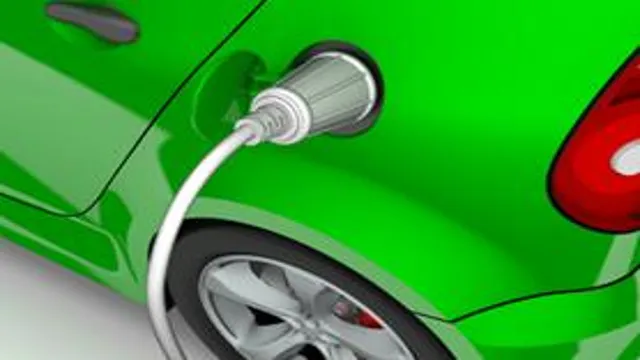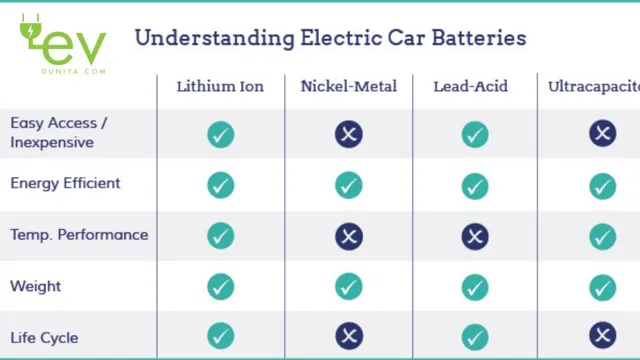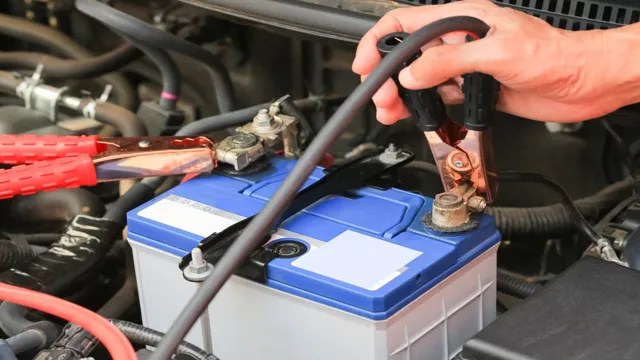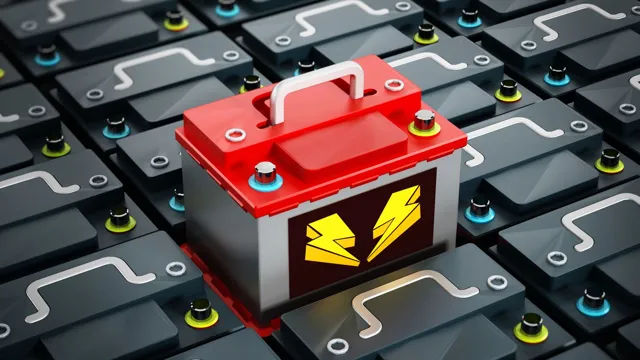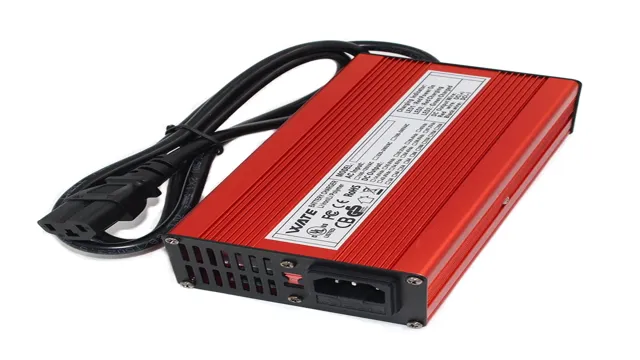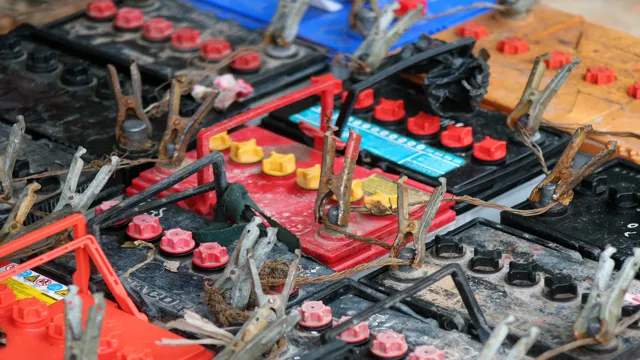Revolutionizing Eco-Friendly Travel: The Truth About Electric Car Battery Recycling
Electric vehicles have taken the market by storm in recent years. Car manufacturers are pushing toward electric vehicle production because they are environmentally friendly, cost-effective, and stylish. However, since electric vehicles rely on batteries, there is a growing concern about what happens to these batteries when they can no longer be used.
Electric vehicles’ batteries have a lifespan of approximately five to ten years, and when they expire, they become hazardous waste. It’s estimated that by 2030, 11 million tons of spent lithium-ion batteries will need recycling. So, what can be done to solve this issue? In this article, we discuss the importance of recycling electric car batteries and how it can benefit the environment.
Overview
When it comes to the environmental impact of electric cars, a question that arises is whether their batteries can be recycled. The good news is that electric car batteries can indeed be recycled, and it’s becoming more common as the industry has grown. The process involves breaking down the batteries into their various components, such as metals like lithium, nickel, cobalt, and manganese.
These metals can be recovered and reused in new batteries or other products, like consumer electronics or even wind turbines. Recycling electric car batteries has several benefits, including reducing the demand for newly mined materials and reducing waste in landfills. However, there are challenges to recycling electric car batteries, such as the cost of the process and the need for efficient collection and transportation systems.
Despite these obstacles, the industry is focused on refining the recycling process and making it more affordable in the long run.
The Growing Demand for Electric Cars
Electric cars have become increasingly popular in recent years, with more and more people switching to these eco-friendly vehicles. This can be attributed to various factors, including the increasing concern for the environment, rising fuel prices, and technological advancements in the automobile industry. Despite the higher upfront cost of electric cars, they are considered to be more cost-efficient in the long run due to lower maintenance and fuel expenses.
Additionally, the government provides incentives for people to purchase electric cars, including tax credits and subsidies. As a result, many major car manufacturers are investing heavily in the production of electric cars, offering a wider range of options for consumers. The growing demand for electric cars is not just a trend, but a movement towards a more sustainable future.
The Lifespan of Electric Car Batteries
“electric car batteries lifespan” Electric cars are all the rage, with more and more people opting for them as a more environmentally conscious alternative to traditional vehicles. However, there often remains a degree of uncertainty among drivers about the lifespan of the batteries used in electric cars. The good news is that electric car batteries are built to last a long time.
Most manufacturers offer a warranty of eight to ten years for battery life and capacity. Beyond this, the lifespan of electric car batteries will depend on a number of factors, including the type of battery, the climate, and how frequently the battery is charged and discharged. The Lithium-ion batteries used in electric cars are designed to function optimally for around 10 years or 150,000 miles, after which the battery will likely need to be replaced.
However, many factors can affect how quickly the battery degrades, such as temperature, charging frequency, and driving habits. In short, while electric car batteries may have a shorter lifespan than traditional gasoline engines, they are built for durability and are low-maintenance.
Recycling Process
Electric cars are becoming increasingly popular among eco-conscious consumers, but one question that comes up frequently is whether their batteries can be recycled. The answer is yes, electric car batteries can be recycled! The process begins with the battery being dismantled, and the individual components such as the casing, cells, and connectors being separated. Next, the cells are shredded and crushed to recover valuable metals such as cobalt, nickel, and lithium.
These metals are then used to produce new batteries or other products, reducing the environmental impact of mining for new resources. Recycling electric car batteries not only helps to reduce waste but also conserves valuable resources, making it an important step towards a more sustainable future. So, the next time you’re considering an electric car, rest assured that the battery can be recycled and reused to help reduce our impact on the environment.
Step-by-step Process of Recycling Electric Car Batteries
The step-by-step process of recycling electric car batteries is an intricate one and involves several stages. The first step is to collect the batteries from service centers, manufacturers, or even individual car owners. Once the batteries have been collected, they are transported to a recycling facility where they are sorted based on their type, chemistry, and condition.
The next step is to remove the outer casing of the battery to expose the cells inside. The cells are then dismantled and sorted based on their material composition. From there, the individual components are further refined and processed through chemical and physical methods to extract valuable metals like cobalt, nickel, and lithium.
These metals are then sold to manufacturers who use them to create new batteries, reducing the demand for mining and environmental impact. The other materials that cannot be recycled, such as plastics or electrolytes, are disposed of in an environmentally safe way. By recycling electric car batteries in this manner, we are making great strides towards sustainable energy and reducing our carbon footprint.
Benefits of Recycling Electric Car Batteries
When it comes to electric car batteries, it’s important to understand the benefits of recycling them. Thankfully, the recycling process for these batteries is highly advanced and efficient. The process begins with the removal of any flammable materials, such as the electrolyte, and then moves onto the recovery of valuable metals like nickel, cobalt, and lithium.
These metals are then treated and refined, ensuring that they can be used in the production of new batteries. Not only does this help reduce the need to mine these metals, which can be environmentally damaging, but it also ensures that the batteries are being recycled in a responsible and sustainable way. Overall, the recycling process for electric car batteries is an important component of keeping the planet healthy and ensuring that we continue to have the resources we need for years to come.
Environmental Impact
When it comes to recycling, many people only think about the act of putting items in a recycling bin and forgetting about them. However, the recycling process is much more complicated than that and has a significant environmental impact. For starters, the process begins when recyclable materials are collected and transported to a recycling facility, where they are sorted, cleaned, and processed into new products.
This process reduces the amount of waste in landfills, conserves natural resources, and reduces energy consumption. But how does recycling impact the environment? Well, when fewer items end up in landfills, it decreases the number of harmful chemicals and gases released into the air and water. Moreover, recycling reduces the need for new raw materials, which saves energy and reduces greenhouse gas emissions.
Therefore, recycling has a significantly positive impact on the environment, not just by reducing waste but also by conserving natural resources and lowering greenhouse gas emissions. In conclusion, recycling is a crucial process that everyone should be aware of, as it has a significant impact on our environment. The simple act of separating your trash and placing it in the right bin can contribute to the conservation of natural resources, reduction of greenhouse gas emissions, and overall waste reduction.
Let’s all do our part by adopting recycling practices in our daily lives and encouraging others to do the same.
Challenges and Solutions
Electric cars have become increasingly popular, and with them comes a growing concern about their batteries. Can electric car batteries be recycled? The answer is yes, they can be recycled. However, the process is not without challenges.
Lithium-ion batteries, which are commonly used in electric cars, are complex and cannot be simply crushed and melted down like other metals. To recycle these batteries, they must first be broken down into their constituent parts, such as the metal casing, cathode, and anode. This process requires specific equipment and procedures, as the batteries can be hazardous if not handled correctly.
Once the batteries have been broken down, the metals can be recovered and used for new batteries or other products. Several companies are exploring innovative solutions to overcome these challenges and streamline the recycling process. For example, Tesla has developed its own battery recycling technology, which involves extracting valuable metals and materials from its old batteries through a hydrometallurgical process.
This process can recover up to 70% of the materials in the battery, reducing the need for new materials and reducing the environmental impact of the manufacturing process. Similarly, other companies are developing new recycling technologies that can recover even more materials from old batteries. In conclusion, while recycling electric car batteries faces some challenges, it is possible and necessary for a sustainable future.
As the demand for electric cars continues to grow, it is essential that we find efficient and effective ways to recycle the batteries that power them. By doing so, we can reduce the environmental impact of electric car manufacturing and ensure that valuable resources are not wasted.
Lack of Recycling Infrastructure
The lack of recycling infrastructure is one of the biggest challenges faced when it comes to proper waste management. Developing countries are especially affected by this problem as they struggle to establish an efficient means for waste disposal. The shortage of recycling facilities often prompts people to dispose of their waste in the environment which leads to pollution, land degradation, and ecosystem imbalances.
However, solutions are available to address this challenge. One is the development of robust policies and regulations that encourage investments in recycling infrastructure. Governments can also incentivize private entities to initiate and support the creation of recycling facilities.
Additionally, the establishment of community start-ups that specialize in waste management can help promote awareness and provide an income source for the locals. These solutions aim to address the lack of recycling infrastructure in developing countries and ensure that proper waste management is attained.
Solutions for Improving Recycling Rates
Recycling rates are an essential aspect of preserving our environment. However, many challenges hinder the achievement of high recycling rates, including lack of awareness, limited access to recycling facilities, and low prioritization of waste reduction. To overcome these challenges, various solutions can be employed.
For instance, raising public awareness about the importance of recycling and its benefits can motivate individuals to recycle more. Additionally, providing incentives such as cash rewards for recycling can encourage more people to participate in waste reduction activities. Furthermore, municipalities and private service providers can improve access to recycling facilities by strategically placing more recycling bins in public places.
Lastly, governments can prioritize environmental conservation by developing policies and regulations that penalize illegal dumping and encourage sustainable waste disposal practices. In summary, it is crucial to take a multi-faceted approach to address the challenges of low recycling rates for a more sustainable future.
Conclusion
In conclusion, the answer to whether electric cars batteries can be recycled is a resounding yes! With the continuous advancements in technology and the increasing awareness of the environmental impact of fossil fuels, recycling electric car batteries has become more important than ever. Not only does it reduce waste and conserve resources, but it also supports the growth of the renewable energy industry. So, the next time you drive your electric car, rest easy knowing that even when your battery runs out of juice, its components will continue to power the future.
Green energy for the win!”
FAQs
Why should electric car batteries be recycled?
Electric car batteries contain valuable metals such as cobalt, nickel, and lithium that can be repurposed and used in other products. Recycling these batteries helps reduce the environmental impact of mining for these resources and conserves them for future use.
How are electric car batteries recycled?
Electric car batteries can be recycled by disassembling them, sorting the different components, and then using specialized equipment to extract the valuable metals. The metals can then be refined and used in new batteries or other products.
Can all types of electric car batteries be recycled?
Most types of electric car batteries can be recycled, but some are more difficult to recycle than others. For example, older-generation batteries may contain toxic materials that require extra handling precautions. Additionally, batteries with low levels of certain metals may not be economically viable to recycle.
Is it mandatory to recycle electric car batteries?
While it is not currently mandatory to recycle electric car batteries, many manufacturers and governments are working to make it a more common practice. Some countries, such as Japan and the European Union, have implemented regulations requiring battery recycling and including the cost of recycling in the price of new batteries.
